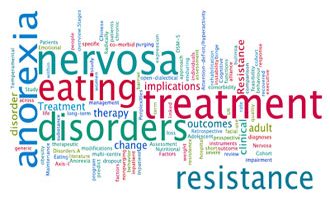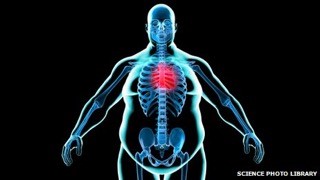I am going to come clean. I have no idea what is going on in the human brain. I know I have been shouting out into the black hole that is the internet about it for a few months now, but I have no clue.
Don’t get me wrong, I have learned so much over the course of this class. I know so much more about the brain than I did in August, but the human brain presents one of those systems that leaves me feeling like the more I learn the less I know.
As a chemist I like linear processes. For instance, A and B when placed together under the correct circumstances make C, is something I like. Mmm isn’t that nice? As long as the conditions are correct A and B should, in theory, always make C. I think as a society we really like this. If something seems like it should work it must be the correct path to take, that is why the middle east has just needed more American weapons to achieve peace over the last thirty years, sorry, my brain just really wanted to add that.
That is not how the human brain is, it’s just not. A and B don’t make C, hell A probably affects both B and C in ways we don’t understand, but we know it depends on D and leads to increased levels of Ψ which through pathway X somehow makes the levels of A different and somewhere along the line it causes us to want to sniff the undersides of stranger’s shoes.
This is how I feel about almost every topic we covered. Sure there are little victories, like aping out a pathway here, or understanding a downstream implication there, but for the most part it is confusion. We don’t understand how the brain works. We are just crudely groping around in the darkness hoping the next thing we grab gives us some astounding insight into a terrible disease.
This is how I honestly feel and if anyone tells you they know for certain something about how our brain works, they are lying to you. They might be able to describe a pattern or link together parts of an issue, but they can’t explain anything in complete detail beginning to end with all of the connections and implications related to whatever pathway they are talking about.
This isn’t to say researching the brain is futile, I mean the opposite. Better understanding of our own brains will have wide sweeping implications for health and I think spirituality of our entire species. We just aren’t there yet and I don’t think we should pretend we are. There is so much left to understand, so much left to explore. I am not going to pretend I know anything for certain. Let’s go find the answers.
I want to reiterate that the purpose of this post is not to disparage the class or the field of neuroscience. I just want to explain how the class left me with a general sense of despair and overall confusion about what I am supposed to do with my newfound knowledge of my own brain. Part of me thinks I should be concerned about my inevitable gradual metal decline, but then again on the other hand, what do you do? Just keep livin’ I suppose.
Parenting; where is the goldilocks zone?
Bulimic behavior is very interesting. It is one of those things that clearly have no upside. Everyone you ask would probably agree that nothing good could come from bingeing and purging. Even hard drug abuse might get a more positive response because at least drug users get high (or something).
There is a lot going on in the mind of people struggling with bulimia, as you would expect. I think one piece of the puzzle that is at least generally accepted is a main cause. I suspect most people would agree that the binge purge cycle can be initiated by a poor response to stress. Stressful feelings can then lead to the repeating and eventual chronic cycle of binging and purging. Individuals use binge planning and over eating as a way to comfort themselves, give the something to look forward to or give the some control over their own lives. A lot of these same people also struggle with body image so after a binge they feel insecure about their appearance and experience extreme guild for over eating. This leads to purging and then an overall sense of self disgust which can ultimately lead to the cycle repeating, so on and so forth.
This leads me to parenting. I would like to insert a disclaimer here. I recognize that parenting is basically impossible to do well and no matter how you chose to raise your children people will criticize you. I have no children so maybe I a not totally qualified to give advice, so I will just try to show and explain some interesting data and if you disagree with me that is fine, have a party.
In a recent study of children seeking help with bulimia the children were asked about their relationship with their parents. There was a large correlation between bulimic children and reports of feeling like they have a low care or very high care relationship with their parents.
So, children reporting a low care relationship make some sense to me at least. I suppose they could feel alone having a poor relationship with their parents and this could cause a sense distance from the world and enhance those stressful feeling which might lead to that binge purge cycle.
Unfortunately I don’t think there is much we can do about bad parents. Bad parents probably know they are bad parents, so I think we will just have to leave that issue right there. I think this is a little simpler than the only result of the study.
Very high care. What does that really mean? It sounds good right, like that is the best thing you could do. Generally having a high level of care for something leads to positive outcomes. If you have a high level of care for your work you probably do a good job, maybe you could get a raise or promotion. If you have a high level of care for your pet iguana it will probably live a long, healthy, and loving life in your terrarium. You get the idea. So why might a high level of care be bad for children?
The researchers suggested that children could feel like they have no control of their own lives when their parents are constantly helping them along and caring for the. The children could see this as their parents telling them what to do and controlling their lives (you know, teenage thoughts).
Here is the good news, we as a society might be able to do something about this. While we ight not be able to make bad parents good, perhaps we can make parents who are too good a little worse. I know that is preposterous but just let your children have some say in their lives. They need to feel like they are in control at least some of the time.
In all seriousness, being a parent must be impossible, so if you can get them to 18 without their mind or body being a total train wreck I commend you.
The Cycle
One common misconception about bulimia nervosa is that society tends to believe that the people suffering from this disorder can stop by pure will power. As more research has come out this does not appear to be the case. The first step that I feel needs to be explained to better understand the disease is the repetitive cycle that people go through.
Step One: The first step in the cycle is obsessively fixating on food intake and diet. This obsession is usually the result of a lack of comfort with how the body looks.
Step Two: The next step in the cycle is usually starting to control the diet. This control of the diet is usually done by starting a strict or rigid diet that satisfies the desire to only eat “healthy food”. At first glance some one might think that starting a healthy diet is not such a bad thing, but usually for people with bulimia this is not the case. This is because the diet results in food cravings which is the next step in the cycle.
Stop Three: Tension and food cravings is the next step in the cycle. The cause of the tension or the cravings that a person with this disorder will go through is the direct result of the rigid or strict diet. Due to the fact that the majority of the time the diet of choice for a person with bulimia is not actually a healthy one, this will cause the person to have cravings because the body is lacking the required nutrition. The typical response to these food cravings is a slip up and break away from the diet. This slip up is what helps start the next step in the cycle.
Step Four: This step is the planing and ultimately performing a binge. During this first part of the process a lot of people with bulimia will have various forms emotions and anxiety, but the planing of the binge is what helps them cope with their feelings. Once the binge starts it is not uncommon for people to eat 3,000 to 5,000 calories with in an hour. The time between binges will also vary from 1 to 2 times a week in severe cases to a couple of times a week. But this whole binge process is the result of slipping up on the diet and then resulting in feelings of failure and worthlessness.Step Five: This next step is attempting to undo the binge. Undoing the binge can happen in a few different ways, the most coming being purging, excessive exercise, and fasting. The emotions that arise after the binge are what facilitate the undoing. The most common emotion is fear. Most people with bulimia after a binge will be afraid of gaining weight because of the binge and that’s what will drive the undoing.
Step Six: The six and final step is the feeling of shame and disgust. These emotions are just an overall feeling of themselves after they have completed all the previous steps. But The cycle does not just end here, these feelings are now what drive the person to start a new diet and ultimately cause the cycle to repeat all over again.

As one can see emotion plays a huge role in each step of the cycle. People with this disorder go through these emotions constantly but what this cycle is not showing is what is going on inside the body. Research shows that estrogen and serotonin play a huge role in the risk for developing bulimia along with the continuation of the disorder once it has been developed. The impulsive eating style will commonly be associated with estrogen and serotonin levels being out of whack, making it very difficult for a person to control the disease by just pure will power. For both serotonin and estrogen it is very common for people with this disorder to experience low levels of both. Low serotonin levels are often associated with sporadic, uncontrollable emotions and anxiety. While low estrogen levels are associated with some of he impulsiveness displayed in the disorder along with the feeling of being out of control.
So, in the end is this disorder something that someone can just stop by will power? Personally, I don’t think so. I think that the consequences of low levels of estrogen and serotonin are not something that a person can just over power. I believe that the thought of having free will can help someone combat the disorder but this alone will not be enough. But along with this thought of having free will, I think psychiatric help plus medications will drastically help stop the disease and improve life for people who suffer from it.
Bulimia Nervosa: Neurological Implication
In modern times, the continued growth of technology-based communication has resulted in an ever-present force of social habituation. The constant need for communication with the world has become an obsession for many of us. The use of these technologies results in a continual expression of social “norms” and expectations. Especially impacting adolescents, negative pressures can be achieved through self-disapproval upon an encounter with these social expressions. One resulting impact from theses instances is that t has become increasingly more common for individuals to develop eating disorders. Bulimia nervosa (BN) is an eating disorder that impacts about 1.5 % of the population. BN seems to target the female population in their adolescent years. Contrary to popular belief, bulimia disorder is a severe mental disorder.
BN is characterized by repetitive episodes of binge eating and compensatory behaviors. These compensatory behaviors can include excessive exercise, self-induced vomiting, or diuretic/laxative abuse. Individuals with BN exhibit dysregulation of estrogen and the serotonergic system within their brains. Serotonin effects are widespread throughout the brain and contribute to particular behaviors such as eating and sex. In BN, serotonergic dysregulation is correlated with brain arousal and brain arousal is associated with redundancy. The core behavior of BN is the binge/purge cycle and the associated award when performing these behaviors. Repetitive behaviors further implicate the positive reward associated with these activities in people with BN.
Estrogen is also associated with BN. Although it is not completely understood, a correlation between estrogen and regulation has been correlated with BN. Disruption of menstrual cycles and developmental cues associated with estrogen are supportive evidence of this claim. As for as drugs used to alleviate BN symptoms, estrogen based treatments have been looked into, but all-in-all are there other treatments that could be more effective in dealing with the issue of BN in modern-day society.
Often times, BN onset is highly influenced by societal pressures. These pressures are hard to address due to the nature they present themselves. As stated earlier, a continual bombardment of negative social influences on individuals with BN results in disapproval. It seems that the most relevant treatment for BN is positive education. Recognizing that BN has a neurological implication and encouraging an environment that promotes self-acceptance is key to address the issue of body image.
Parenting: Why even try?
In today’s society, we are finding out new information each and every day about the dangers of our world that can hurt our kids. Bacon is being classified as cancerous, gluten will literally kill your child if you dare let them eat a slice of bread. Milk from the tit of a cow is both unethical and bad for their cholesterol. You can’t let them out after dark or even out of your sight for a few seconds or they will raped and killed by some stranger. And if a stranger attempts to converse with a minor not related to them, they are a pedophile. What in the heavenly f**k has our society become that we are so concerned about the “safety” of our child that we will shelter them from any and all things that aren’t perfectly safe? Seriously. Who would even want tot live in a world like that? Apparently our society. Helicopter parents are buzzing around every corner, protecting their child from every threat known to mankind, and shaming you if you don’t abide by the same parenting code they do. When I was a kid, my dad would leave me in the car with the radio on while he ran into Home Depot and it wouldn’t be a big deal. If you tried that today, you would literally be crucified in the parking lot by every f**king helicopter parent around. Sounds like a great time to want to be a parent.
But while that was a minor rant on the idiocies that parents these days subject too, let us talk about something neurochemistry related on the issue. Autism. Something nobody wants their child to be diagnosed with, but that affects close to 1% of children born today. Autism is a neurodevelopmental disorder caused by genomic alterations whilst in the womb. Micro-deletions and insertions in the womb alter GPCR’s (and their derivative cascades) and affect numerous brain functions, including social cognition, intelligence, mental focus, behavior, emotional response, etc.
So how does this connect to my earlier rant? Studies are finding that literally anything you consume or do while pregnant can. Zinc abnormalities in the mother (deficiency or overabundance) can increase the risk of autism in the child. Zinc is found in most seafood, but you can’t eat seafood too often while pregnant due to mercury in the ocean and its potential to increase the risk of autism.
Also, if you are over the age of 35 as a woman and choose to have kids at that later age, your chances of having a child with autism increases dramatically. This is due to a “freezer burnt” effect on the eggs of the mother. Think about it. Women are born with all the eggs they will ever release during their lifetime. Eggs don’t recycle like sperm, so if they sit inside someone for 35+ years, they just get older and their parts don’t hold together as well. Eggs are not like fancy wine. They don’t get better with age. They are more like old cars. Eventually, it’s just not worth the amount of effort to keep them running.
So is it even worth it to consider having kids these days? Everything a mother can do increases the risk for autism, including dietary and age restrictions. And you are facing constant judgment from parents who seem to think they know more than you. Not to mention the fact that our world is becoming increasingly unstable with the threat of global terrorism on the rise. So yeah, it is not wrong to think twice before getting off the birth control and popping out a child. It’s not exactly the best time to be a parent. But hey, that is just my opinion.
Capstone Experience
This neurochemistry capstone class has done a wonderful job of summing up my academic experience at Concordia. The goal of Concordia’s liberal arts education is to instill a love for learning and to cultivate examination of your cultural, physical, and spiritual self. Concordia also aims to produce students who are actively engaged in the world’s affairs. I believe this course has effectively accomplished these goals. Before taking this class, I was intimidated at the idea of participating in a class based off student-led discussion. This class style is unlike any other class that I have taken in college. The typical class structure of passively taking lecture notes and taking tests that measure your ability to memorize and regurgitate information gathered from lecture allows students to be disengaged from the content of the course. When students are active participators in class and expected to teach other students, they are more engaged in the content of the course.
I think one of the biggest issues with science in today’s society is a lack of communication. Quality science could have such a larger impact on the world if more science was better communicated and shared with the public. I believe this is partially caused by the class structure of a typical science class. A structure which involves professor-led lectures and tests that grade your ability to memorize lecture notes. These classrooms do not promote active learning that engages students in the coursework. These scientists, in turn, never gain skills necessary to properly communicate scientifically in the scientific world, and to the general public, which is arguably more important. The ability to convey important scientific knowledge to the non-scientific public is one of the most valuable skills a scientist can have.
This neurochemistry class helped us practice the skills become effective scientific communicators in the future. I think the responsibility of teaching others in the class about a certain topic motivates students to learn their topic more in depth so they are able to provide useful information to the rest of the class. This class doesn’t allow students to sit back and passively learn the material; it forces them to become engaged in the class content and actively learn information to help them understand class topics. I think teamwork also plays a part in the success of this class. When the goal of the whole class is to understand everything about a certain article, every student feels responsible to contribute information that can assist the class in understanding the article as a whole. I believe this motivation to help the whole class understand the certain articles is the reason this class is so successful at engaging students in their own learning.
This class was also valuable because it allowed the students to discuss important issues present in society today and evaluate the ways in which science can help or cause these problems. This aspect of the class enabled us to become more actively engaged in the world and integrate our scientific knowledge into the potential solutions of national and global issues. In this class, I not only learned a great deal about neurochemistry, but also how much is unknown about this area of study with respect to the causation of different diseases of the brain. I have also become a more effective scientific communicator, which will help me in all aspects of my future. Perhaps most importantly though, this course taught me how to be engaged in my education and become an active learner in the classroom.
Obesity and Biological Influence

In modern-times, overeating and sedentary activity can be viewed as cultural, psychological, or acquired addictive traits. Overweight attainability has recently been attributed to an ease of obtaining a calorie-rich diet and a growing ease of life. The behaviors of obese individuals has been deemed moral judgment and continued failures of “eat less, exercise more” approach has led research to be done in the realm of biological influences in obesity. Studies have indicated that there is a link between eating habits and altered neurochemistry in individuals who are obese. My senior capstone course addressed the issue of obesity and its relevant scientific research, but the importance of the topic has continued to allude me. To illustrate my convictions on the topic, I will first analyze the biological implications in obese patients, apply some of my moral justifications to the issue, and conclude with a complete exhortation on the topic of obesity.
Biology of Obesity
With a high calorie diet, a tendency to consume excess triglycerides (fats) is observed. Excess triglycerides disrupts our blood-brain barrier. Leptin lets the brain know when we are full. In obesity, individuals begin to develop insulin and leptin resistance, which shuts down the pathway. This happens because as your adipose (fat) tissue continues to accumulate, excess leptin is sent to your hypothalamus, overwhelm your neurons, and results in resistance. The result is a vicious cycle that compiles its effects in every step, and explains a biological contribution to the effects we see in obese individuals.
Moral Justifications
Modern-day figures, statistics, media, and the scientific community bombard us with factual evidence. This substantial information is intended to inform us in our life decisions, but to what extent? For the most part, information is secondary in importance to our personal decisions, the foremost being an application of morals. If you are sensitive to extreme conservative-type thinking, I would suggest clicking the back button and reading a different blog.
For example…
1) Being involved in competition is important. Competition is the heart of our growing society. Whether it be analyzing the free-market, acquisition of power (if you deem that morally important), or playing in your last high-school football game in hopes of winning a state title, extreme effort that comes from the individual. At some point, they decided to achieve something, and with that choice they undoubtedly made sacrifices and endured hardships.
2) Anything worth having is worth fighting for.
3) I hate to break it to you, but Jennifer Aniston and Brad Pitt walk by you and your parents while touring Rodeo Drive, and guess what, both your dad and mom’s autonomic nervous system got its work in for the day. Astonishingly, your parents don’t go and hit on these attractive movie stars, oh wait isn’t that pretty normal? The answer is yes, that is absolutely normal, but why? The answer is because your parents resisted their initial biological stimulus and applied a higher ideal of morals to their resistance.
4) ISIS is terrorizing the world on a daily basis it seems. Concentrated in the middle-east, a majority of this group could be eliminated with the use of atomic warfare which we have more than enough of. So why doesn’t President Obama just push the big red button? I’ll let you figure that one out.
Through these examples we can see a pattern of moral exhortation within individuals. Now lets talk about social and cultural influences in obesity… [cricket sound] …and that is all that needs to be said.
Again before I continue into the final section of my blog, these are my personal convictions. They aren’t yours, they aren’t your friends, they are mine. But also keep in mind as to what I said earlier that morals should guide most, if not all, of any personal decision you make in your life. Thus I deemed it appropriate to include them into my personal blog about an issue.
Exhortation
If I haven’t been obvious enough up to this point, even after understanding the biological contributions to obesity, I do not believe it is substantial enough to wholly cause the “disease”. In fact, with our current understanding of obesity, I believe it is morally wrong to continue to research the topic when those funds could be directed at research towards diseases/disorders that are not within the control of the patients. To bring my opinion in to context, I will illustrate an example that I have experienced through my involvement as a collegiate wrestler to great extent: After three days of drinking less than 4 oz of water with my two whopping meals for the day that didn’t exceed 6 oz of food, I can GUARANTEE that stuffing my face with as much calories and binge drinking would have rocketed my serotonergic system into another universe compared to that of any meal an obese individual has ever had. But wait, how did I make weight the next day? Oh yeah that’s because I held myself to a higher standard, a standard that overcomes biological desires on a daily basis in an attempt to achieve something great. In fact, these biological desires could even be called essential due to the extreme caloric skew I experienced while I was training for wrestling.

Even if an obese individual cannot tell when he/she is full, there is this thing called math. There are abundant resources on how much an individual should be eating on a daily basis. Calculating your BMI, looking at those elusive nutrition facts labels on all of our food, and applying those resources are a simplistic way to discredit any notion that “not knowing when your full” is sufficient for academic research. If an obese individual can establish a moral desire to be at a healthy weight, supplying them with these resources is all that should need to be done, easy as that.

BMI calculator: http://www.nhlbi.nih.gov/health/educational/lose_wt/BMI/bmicalc.htm
How to read food labels: http://www.fda.gov/Food/IngredientsPackagingLabeling/LabelingNutrition/ucm274593.htm
Capping off the semester: Neurochemistry
This will be my last blog post as a member of the 2015 neurochemistry class with Dr. Mach. The class has been a great experience for me and it has developed many important skills that I will use in my future. As a capstone class, this class was supposed to cap off my education at Concordia which I think it did. Although I still have one semester at Concordia, this class was the culmination of all the skills, and knowledge I had gained here at Concordia. It allowed me to apply what I knew to very difficult research papers and to go even further as to teaching this material to my class mates. If I was asked to do this in my freshmen year at Concordia, there would have been no chance. So just seeing how far I have come in my education is really cool for me, and neurochemistry kind of capped that realization off for me. I would just like to say a few more things, and those would be that of the goals for liberal learning here at Concordia.
First, Concordia has instilled a love for learning in me. I used to dislike studying and doing homework, as a matter of fact I dreaded it. Once I got to Concordia and started to find interest in the classes I was taking, I developed this love for learning. In my senior year at Concordia I realized who much I had really developed this love for learning, I actually enjoyed studying and the challenge of trying to understand difficult topics. I think it came to a point where I realized how important all of this was and that it was not a chore but only to gain more knowledge and make me better. Due to this I developed that love for learning and this was very apparent in the neurochemistry.
Second, Concordia helped me develop foundational skills and transferable intellectual capabilities. Over the years at Concordia, I was able to take a wide range of classes because it is a liberal arts college and encourages this. Due to this I developed foundational skills and also transferable intellectual capabilities. I now am able to apply these skills and intellectual capabilities to many classes and therefore am able to excel.
Third, Concordia helped me develop an understanding of disciplinary, interdisciplinary and intercultural perspectives and their connections. Concordia helped me by doing this by offering classes that looked at other cultures and how they function. It is very important to look at intercultural perspectives and Concordia offered me many opportunities to take classes with professors that were very knowledgeable in those areas. It is important that I am not focused on just what is in front of me and let other cultures fall out of sight and out of mind. Concordia has allowed me to acknowledge these other areas and see how they are connected which is a very important skill.
Fourth, Concordia has helped cultivate an examined cultural, ethical, physical and spiritual self-understanding. Concordia has done this in many ways but I think it is just the community that they have created for students here. When I came to Concordia I thought I had an idea of who I am as a person but that really changed for me as I went through the years at Concordia. I questioned my religion and beliefs by taking religion classes, and I questioned what I wanted to do with my life many times due to other classes. All of these factors played in to helping me gained a self understanding of myself which is very important for my future. At times it was scary, but it all worked out and I couldn’t be happier.
Fifth, Concordia encourages responsible participation in the world. Concordia always encourages BREW which is becoming responsibly engaged in the world. They think that we can all make a difference here at Concordia and that idea has now been planted in my mind. That is why I choose a career in the medical field and I know that is where I can become engaged in the world and make a difference. Neurochemistry helped me become engaged in the world by writing blog posts every week and raising awareness for neurological diseases. This capstone was a really cool experience in that way and it really strengthened my skills in that way.
Overall this capstone experience was great for me because it brought all my skills learned at Concordia together and helped me use them to attack difficult topics. I was able to understand difficult topics, teach them, discuss them, and then write about them. By doing this I became more responsibly engaged in the world and was able to cap off everything I have gained at Concordia. I know my time here isn’t done yet but the end is year and I am ready to go out into the world and make a difference.
Stop calling it “dieting”: bulimia nervosa is not a battle of the wills
Dieting is so prevalent in American culture, especially among women. I was lucky growing up; my mother never “dieted” or complained about her weight. The only time I was exposed to this negative self-image was through friends’ parents. However, once I was old enough to be in sports, it became very clear that girls aren’t supposed to like their bodies. The entire girls cross country and track teams would stand around critiquing themselves and comparing to other girls in school as well as celebrities and sports stars. Some of my friends began consciously regulating their intake of food around 12 years old, calling it “dieting.”
Developing habits that don’t encourage eating a wide variety of foods in moderation at such a young age can produce dangerous relationships between teenage girls and food and become part of the perfect storm to produce an eating disorder. Instead, these young people learn that the best way experience food is to control, restrict, and cut “bad” food out of their diets. Often it seems like American culture views those people who are able to restrict their food intake or completely cut out carbs has having “a lot of self-control” or “better willpower” than those who indulge.
Having negative attitude toward food is only one aspect of the development of bulimia nervosa, also relying on genetics, female gender, cultural pressure, stress, and levels of drive for reward. However, it is an important aspect that I feel is often overlooked. The idea of sporadic “dieting” or control of food intake often looks similar to the eating disorder’s binge-purge cycle. This cycle is often dependent on biological mechanisms including hormones and neurotransmitters in the brain.
Studies have shown that individuals susceptible to eating disorders such as bulimia nervosa often turn to control of food because of some combination of anxiety/harm avoidance and deficits in inhibition. This may be triggered by increased stress, environment, emotions, or increased desire for reward or hunger (metabolism). The overeating that then follows (binge) will eradicate feelings of anxiety and produce pleasurable feelings through the release of serotonin (a neurotransmitter linked with pleasure and feelings of happiness). The purge portion of the cycle is more so to control feelings of guilt following the binge.
In bulimia, serotonin is often low, producing the feelings of uncontrolled emotions and anxiety. When the reward circuit in the brain is activated following a binge, more serotonin is present allowing the bulimic individual to feel in control again. In the same way, low estrogen in females may lead to impulsivity, feelings of being out of control and decreased feelings of satiation following eating. Lack of estrogen also desensitizes the brain to serotonin.
These hormonal and neurochemical changes in individuals with bulimia can be developed in puberty and early adulthood, which is why it is so important for young people, especially women, to have good eating habits. The chemical changes in the brain of an individual with bulimia are reversible if the individual is able to break the binge-purge cycle. Therefore, it is important to remember that it is not a matter of willpower involved in bulimia and that the “self-control” or willpower credited to those who “diet” in a restrictive manner negatively contributes to the challenges facing young American people.
Is the world becoming Autistic?
Autism in the United States has slowly become a more common occurrence. Right now approximately 1 in 68 American children are found be on the autism spectrum, this is approximately a ten-fold increase from 40 years ago.
Some of the major symptoms of Autism are characterized by social-interaction difficulties and communication challenges, but the severity of these two symptoms vary from case to case. Researchers believe that the causes of the social and communications challenges result from multiple issues within the brain. One of the cases that researchers claim as a cause are toxins that can be introduced to the fetus. Researchers believe that valproic acid effects multiple genes that are associated with autism. One of these pathways that a research group discussed was the result of an increase histone H4 acetylation around promoter sites of proneural transcriptions factors of autism related gene, neruolign 1. Also the researchers saw that valproic acid was able to up regulate heat shock protein-70, which is know to have neuroprotective effects.
So if I lost you, valproic acid in fetuses basically affects the brains development. These effects add to the increased risk of developing Autism. These effects also have also been attributed to being some of the causes of the social-interaction difficulties and communication challenges that people of Autism tend to deal with.
Now its time to look at the life of “normal” 21st century children.
In todays world technology runs everything and for children in the 21st century it is not uncommon for them to have a smart phone, a tablet, and video game system but the question that is now being asked is, “Is technology making the world ‘Autistic’?
With kids spending so much time today on technology, face to face communication has slowly become a lost art. Some psychiatrists believe that due to the significant time children are spending on various devices they are seeing children as young as five starting to snuggle with reading others’ emotion, being less empathetic and simply struggle with communication skills in general.
So the results that these psychiatrists are seeing are similar social symptoms to those of children who are diagnosed with Autism. So does that mean technology is making the world Autistic? Or is technology going be the new standard for communication?
People will believe what they want but I believe that the world has the potential to become more Autistic like. I would not go as far as some people and say the technology is resulting in Autisms but I can definitely agree with the fact that technology has cases face to face communication to become obsolete. Technology in the 21st century is a necessity to survive in school and in the work place but as a society (especially being in a westernized society) we need to remember to teach kids how to communicate face to face. The world cannot and will never become fully digital in our lifetimes, there will always have to be some form of face to face communication. As parents and future parents we need to remember that and help cut back on the time kids spend using their devices. I know that decreasing time of devices has been a common theme lately but it is something that needs to be addressed or else the world will become autistic like and face to face communication will be lost.
****I do want to note that I do not believe that being Autistic in any way is a bad or negative thing.









